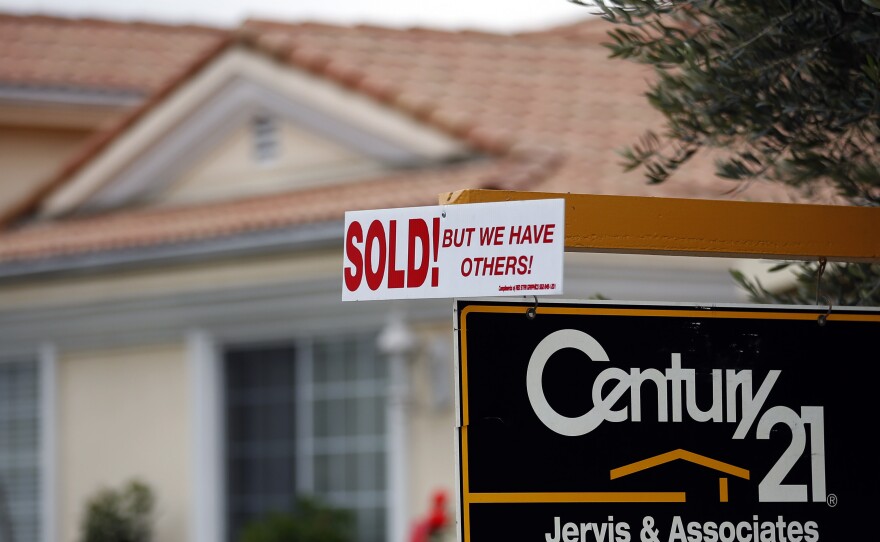We've known about the gap in wealth between white Americans and black and Latino Americans for some time. Just last year, the Census revealed that whites had about 22 times the wealth of African-Americans and 15 times the wealth of Latinos -- and those numbers only got worse over the last five years during the Great Recession.
That economic gulf is getting some new attention after a New York Times story by Annie Lowrey on Sunday dove into the details of a new study that outlined just how bad the numbers are: the wealth gap has ballooned over the recession even as the income gap hasn't changed all that much.
"The racial wealth gap is deeply rooted in our society," Caroline Ratcliffe, one of the authors of the study, told the Times. "It's here, it's not going away, and we need to care about it."
That lack of household wealth just compounds over time. Kids who come from families without much wealth have to take on more debt to pay for college, which means they spend their young lives servicing debts instead of saving for a purchase like a home. That, in turn, means they start building wealth later.
So what's contributing to the gap, and what could be done to fix it?
For a long time, many policy makers thought home ownership might be the way to get at this: since so much household wealth was tied to people's homes, getting more people of color to own homes might spur wealth creation. The study found that years of homeownership accounted for more than a quarter of the current difference in household wealth between whites and nonwhites. Housing policies have been a major driver for the inequality, as people of color were cut off from many of the avenues that helped create America's burgeoning middle class in the 20th century. People of color couldn't get loans to buy homes, and if they could, they were forced to live in neighborhoods where the homes were valued at much less.
In the late 1990s and early aughts, boosting home ownership became a major policy goal of lawmakers, with Democrats and Republicans both seeking ways to do it.
But the proximate cause of the Great Recession was the collapse of the housing market. When things went south, blacks and Latinos -- who had more of their family wealth wrapped up in housing -- were absolutely throttled. Blacks lost half of their household wealth, Latinos lost two-thirds, and home ownership rates fell to numbers not seen since the Reagan era. Home ownership makes up so much of the wealth gap that it might have to play some role in ameliorating the disparities, but with credit markets still tight, that avenue is going to remain closed off for some time.
Algernon Austin, an economist at the Economic Policy Institute, a liberal think tank in Washington, said that taken together, the difference between unemployment rates between different racial groups and their median incomes was just as big a contributing factor to the wealth gap as housing. The black unemployment rate has stayed north of 13 percent since the recession began, and many researchers say the number might be much higher.
So what if you turned your attention from housing and tried to make it easier for black people to create wealth through entrepeneurship? That same lack of access to capital and credit that made home ownership such a shaky prospect weighs down small business ownership among blacks and Latinos, too. A study this month from the Small Business Administration showed that blacks and Latinos who started businesses were more likely to use the owner's personal wealth instead of credit to fund those businesses. Blacks and Latinos were less likely to get approved for credit when they did apply for it -- even after controlling for their credit scores and other factors. And so black and Latino business owners are starting under more financial duress, and putting a strain on their families' relatively shakier financial foundations.
The Times article highlights some ideas that researchers think could ameliorate some of the wealth gap:
The Urban Institute suggests reforming government policies that encourage savings but disproportionately benefit the already wealthy and families with high incomes, like the home mortgage interest deduction. Automatic savings vehicles also might help lower-income and lower-wealth families start saving, it said.
Professor Hamilton has proposed "baby bonds," granting savings accounts to infants, seeded with funds that allocate greater sums to families with less wealth. (Such accounts would be race-blind, Professor Hamilton emphasized.) Accountholders could tap that money as young adults, to pay for college or start a business. "That's really going to break the link of intergenerational poverty, and the intergenerational wealth gap," Professor Hamilton argued.
But all of this would take a whole lot of government intervention, and there doesn't seem to be a whole lot of support for those ideas. A recent Gallup poll that most Americans do want to see something done about wealth inequality -- but that poll asked specifically about the gap between the rich and the poor, and not the gap between whites and people of color.
A paper by the Brookings institutions that looks at the tax information for more than 34,000 families between 1987 and 2009 found that poorer families were not moving up the socioeconomic scale; their disadvantages actually grew.
So what if the wealth gap is permanent, as some economists have suggested? The researchers that Lowrey spoke to said they didn't have high hopes that the gap would shrink any time soon.
Here's our question for the room: this wealth gap is shaping up to be a fixture of racial life in the U.S., and its consequences are likely to become more pronounced as the nation's racial makeup changes. So what does this sobering data portend?
Copyright 2013 NPR. To see more, visit www.npr.org.






